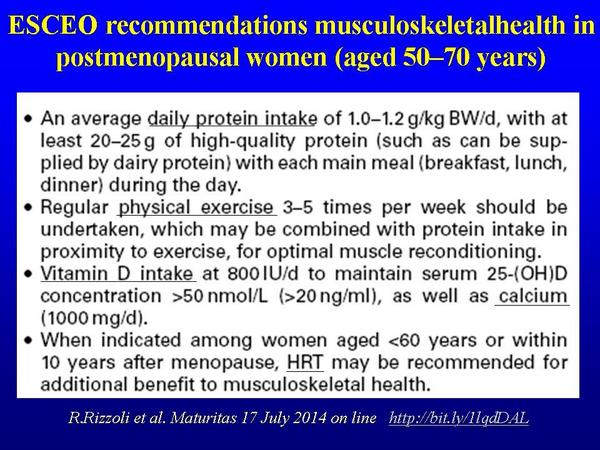In light of existing recommendations and the knowledge base on the impact of protein and vitamin D on muscle mass, muscle strength and bone health, the ESCEO Task Force has made the recommendations summarized in the panel for maintaining musculoskeletal health in postmenopausal women (aged 50–70 years).
From 50 years of age, postmenopausal women are at an increased risk of developing sarcopenia and osteoporosis as a result of deterioration of musculoskeletal health. Both disorders increase the risk of falls and fractures.
The risk of developing sarcopenia and osteoporosis may be attenuated through healthy lifestyle changes, which include adequate dietary protein, calcium and vitamin D intakes plus regular physical activity/exercise, and hormone replacement therapy when appropriate.
The European Society for Clinical and Economic Aspects of Osteoporosis and Osteoarthritis (ESCEO) recommends optimal dietary protein intake of 1.0–1.2 g/kg body weight/day with at least 20–25 g of high-quality protein at each main meal, with adequate vitamin D intake at 800 IU/day to maintain serum 25-hydroxyvitamin D levels >50 nmol/L as well as calcium intake of 1000 mg/day, alongside regular physical activity/exercise 3–5 times/week combined with protein intake in close proximity to exercise, in postmenopausal women for prevention of age-related deterioration of musculoskeletal health.




